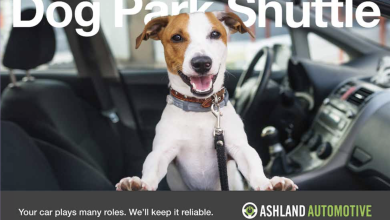The VW Scandal
Recently there’s been much in the news about the Volkswagen scandal. It’s too soon to tell what the result will be, but as any die-hard fan of Volkswagen knows, it’ll take more than a little “defeat software” to shake me loose of my first love!
Many of our customers have asked me to clarify of what, exactly, the German car company has been accused. I’m not an expert on the case, but I’ve certainly read my fair share on the recent events and hope to offer a bit of clarification.
To start, it should be known that the United States has the most stringent emissions requirements of all major industrialized nations. It’s very difficult for a vehicle manufacturer to build a car to be sold in the United States, especially a diesel-powered light truck/passenger car, which meets United States emissions standards—let alone the even more strict California emissions standards. In Central and South America, and many other parts of the world, diesel-powered Toyotas, Mitsubishis, and Nissans abound. In Europe nearly half of all cars are diesel-powered. One reason for the high number of diesels in foreign markets is the price of fuel; fuel is very expensive in Europe. A driver can pay 15% less if they’re driving a diesel. Here, diesel fuel is taxed higher than gasoline, and is actually more expensive than regular unleaded gas. This alone pushes down demand. So, why then would anyone want to switch to a diesel-powered car? Until the most recent events, Volkswagen and Audi drivers were enjoying unprecedented fuel economy. Customers have reported up to 50 miles/gallon under the right conditions. Diesel engines are more efficient, 20-40% on average says Popular Mechanics, because diesel fuel is more efficient than its gasoline counterpart.
This brings us to the great scandal. If you’ve read my previous articles, you’ll remember that all modern cars operate with a set of programmed instructions, as does your laptop. We all know our laptop needs updates, so too do vehicles. Now, it seems that Volkswagen engineers were having difficulty meeting increasingly difficult clean air standards at the tailpipe while simultaneously leading the miles per gallon contest of diesel light trucks and passenger cars. In order make the boss happy, at least one genius at VW decided to solve the problem by creating two separate operating instructions. One set of instructions were written to operate the vehicle in a manner which resulted in clean emissions. This happened to be the set of instructions in use when the vehicle was communicating with an outside device, such as a state inspection computer. As soon as the outside communication device was disconnected from the vehicle, however, the software would revert to a regular set of instructions, which apparently resulted in great fuel economy, but dirtier than allowable tailpipe emissions. There’s a tradeoff; as of yet, we can’t have both.
To quote my friend Steve, “It’ll be interesting” to see how this thing shakes out. It certainly looks as though Volkswagen is going to experience a devastating financial loss, in terms of both customer refunds, and government fines. In the meantime, I’m holding out for the diesel hybrids to hit the market. And I’ll hope that the Volkswagen Group (which now includes brands such as Lamborghini, Bentley, Bugatti, and of course Audi and Porsche) conducts itself in a manner which preserves their long and great history of producing awesomeness.
Ashland Automotive
280 E Hersey St #15
Ashland, OR 97520
(541) 482-4042




